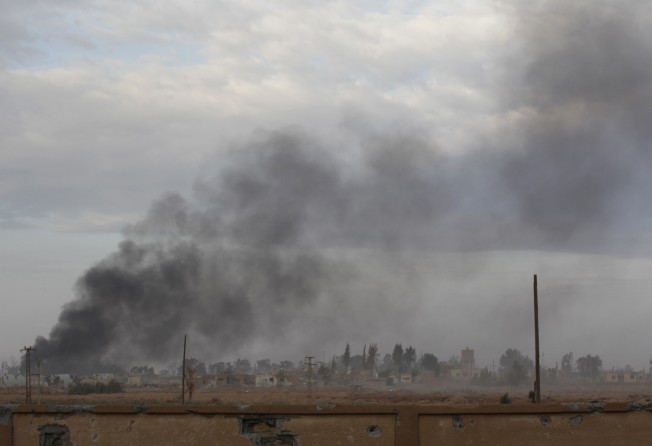Islamist rebels report capture of largest Syrian oil field
Opposition forces secure al-Omar oil reserves, Syria's largest, cutting off supplies to President Bashar al-Assad's troops

Islamist rebels led by al-Qaeda-linked fighters seized the largest oil field in eastern Syria on Saturday, activists said, a raid which would cut off President Bashar al-Assad’s access to almost all local crude reserves.
There was no immediate comment from the government. Losing the al-Omar oil field would mean Assad’s forces would be almost completely reliant on imported oil in their highly mechanised military campaign to put down a two-and-a-half-year uprising.
It was not yet clear how much the loss of the field in Deir al-Zor province would affect Assad’s government or battlefield abilities. But the pro-opposition Syrian Observatory for Human Rights monitoring group said it would prove a major blow.
“Now, nearly all of Syria’s usable oil reserves are in the hands of the Nusra Front and other Islamist units,” said Rami Abdelrahman, head of the Observatory. “The regime’s neck is now in Nusra’s hands.”
Until the reported insurgent capture of the field, a pipeline transporting the crude to central Syria for refinement had still been working despite the civil war.
Assad is also believed to be getting fuel from Shi’ite Muslim giant Iran, his main regional ally. Tehran has been bankrolling the Syrian government’s fight against the rebels and offering military support.
A video posted on the internet showed rebels in camouflage and black scarves driving a tank under a sign that read “Euphrates Oil Company - al-Omar field”. The speaker said the field was overrun at dawn on Saturday, but the authenticity of the footage could not be independently verified.
“We are now inside the al-Omar field, the biggest field in Syria. Seven tanks, two BMPs [amphibious armoured vehicles] and all the weapons and vehicles inside the field were captured,” the speaker said.
Syria is not a significant oil producer and has not exported any oil since late 2011, when international sanctions took effect to raise pressure on Assad. Prior to the sanctions, the country exported 370,000 barrels per day, mainly to Europe.
The conflict began in March 2011 as peaceful protests against four decades of Assad family rule but has devolved into a civil war that has killed well over 100,000 people.
Assad’s forces have gained momentum against the rebels in recent months but opposition fighters, particularly powerful Islamist factions, still hold large swathes of territory in northern and eastern Syria.
The violence is destabilising Syria’s neighbours as well, due to sectarian and ethnic tensions that transcend borders. The uprising has fuelled Sunni-Shi’ite tensions in particular.
The rebels are led by the Sunni Muslim majority in Syria and have drawn support from radical Sunni groups such as al-Qaeda and other foreign militants.
Shi’ite countries and militias have thrown their weight behind Assad, who is from Syria’s minority Alawite sect, an offshoot of Shi’ite Islam.
Rebels, pro-government forces and local tribes have been fighting each other and sometimes even among themselves to seize oil reserves in eastern Syria.
Rebels and local tribes in other parts of Deir al-Zor, which borders Iraq, had been burning the oil themselves and locally selling or smuggling the oil. Much of the money had been used to buy heavier weapons, according to locals.